The ‘Horrible Bosses’ movie is a dark comedy about three friends who plot to get rid of their awful bosses. Featuring Jason Bateman, Charlie Day, and Jason Sudeikis, it humorously explores workplace frustration. This article dives into its plot, memorable scenes, and the legal issues it satirizes.
Key Takeaways
- Ignoring harassment claims can lead to serious legal issues for employers, as shown in ‘Horrible Bosses’.
- The film uses humor to address real workplace problems, like sexual harassment and toxic management.
- Despite mixed reviews, ‘Horrible Bosses’ was a box office hit, highlighting the film’s universal appeal and relatable themes.
Employment Law Lessons from Horrible Bosses
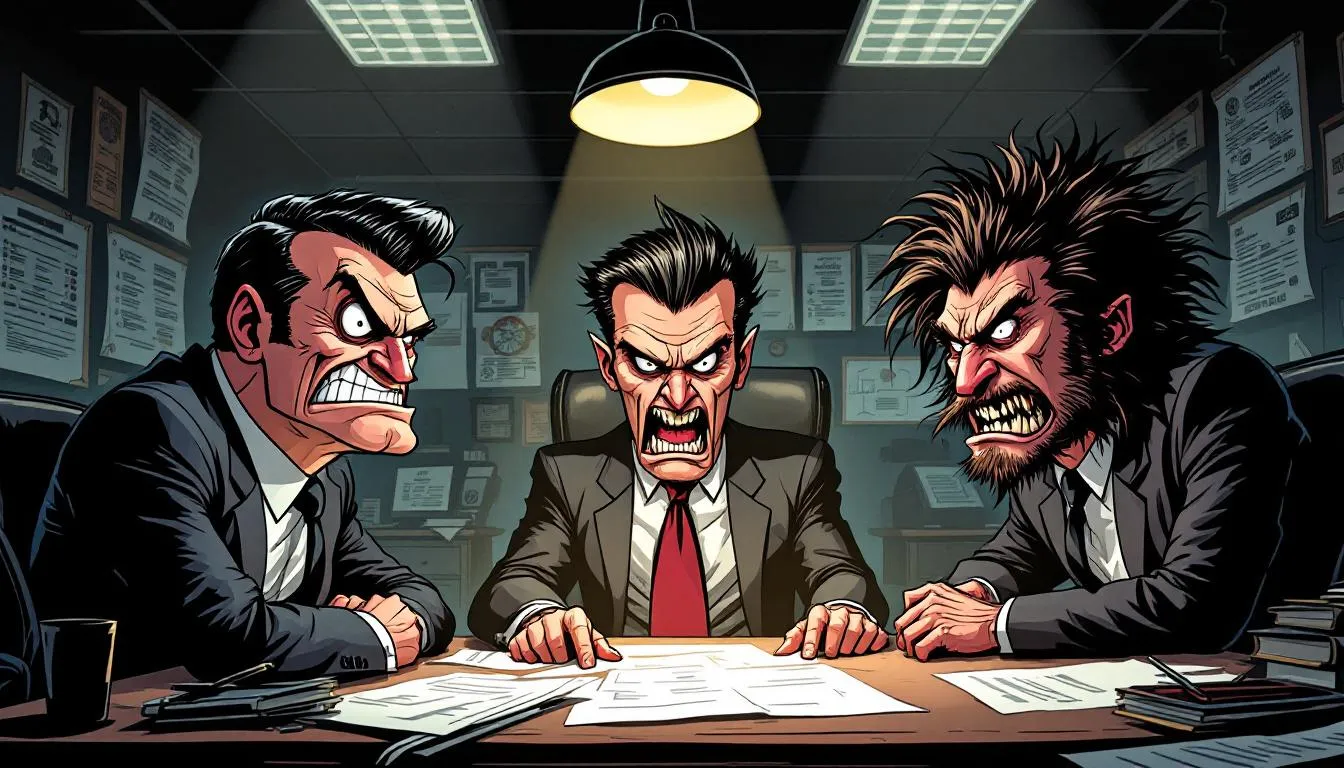
“Horrible Bosses” serves as a stark reminder of the legal ramifications employers face when they ignore harassment claims. The film underscores the importance of taking employee grievances seriously, as seen in real-world cases like Higgins-Williams, where a nurse’s complaints about harassment were not addressed, leading to significant legal troubles for the employer. The movie humorously yet poignantly shows the potential liability that can arise from such neglect, illustrating how horrible bosses works in the real world and the impact of a horrible boss.
The film also highlights key aspects of employment law, such as retaliation against employees who report misconduct or harassment. Dr. Julia Harris’s aggressive pursuit of Dale Arbus is a comedic yet telling depiction of sexual harassment in the workplace. The reversal of traditional gender roles in harassment narratives, with Julia’s predatory actions, provides a fresh perspective on an age-old issue. This portrayal is meant to provoke laughter while also prompting viewers to reflect on real workplace problems.
The film concludes with the main characters achieving different resolutions: Nick is promoted, Kurt maintains his position, and Dale gains leverage against his harasser. Harken’s downfall allows the friends to avoid legal consequences. “Horrible Bosses” teaches us that ignoring harassment claims and mistreating employees can have serious consequences. If you think you have a legal issue at work, even if not like in the movie, click here for a free online tool to evaluate your claim.
The Plot of Horrible Bosses
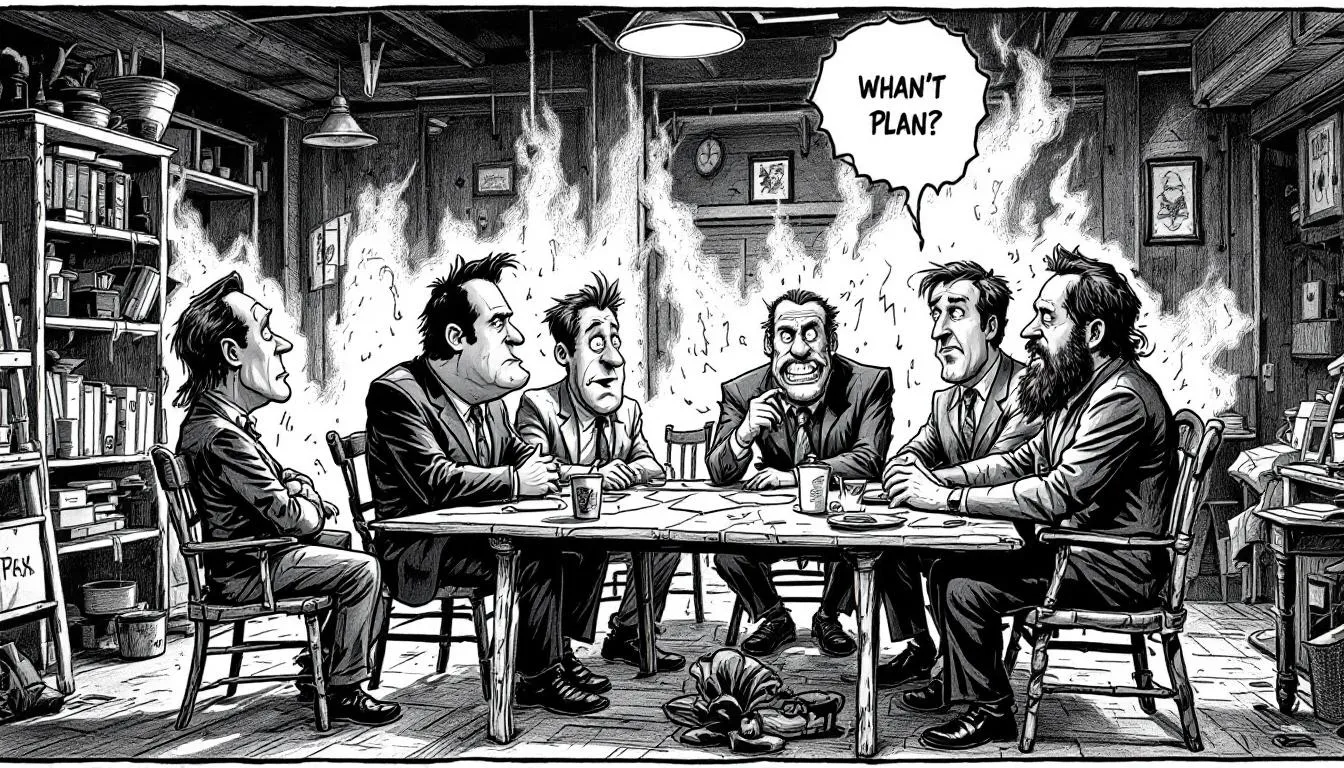
“Horrible Bosses” centers on three friends—Nick, Dale, and Kurt—frustrated by their overbearing bosses. Nick, played by Jason Bateman, along with Kurt Buckman and Dale Arbus, are just regular guys who find themselves in intolerable work situations. Their dissatisfaction reflects a common sentiment among many employees.
Desperate to change their lives, the trio devises a seemingly foolproof plan to hire a hitman to eliminate their bosses. In the sequel, the guys attempt to kidnap Rex Hanson as part of a plot to recover ransom money after their business venture with the Shower Buddy invention goes wrong. However, their idea takes a hilarious turn when they accidentally get directed into an unintended murder, adding layers of humor and chaos, reminiscent of a scene from Netflix.
The climax unfolds at a birthday party where Nick, Dale, and Kurt try to gather evidence against Harken, only for things to spiral into chaos. Their bumbling efforts result in laughable and unexpected surprise consequences, and their lack of experience with crime leads to a series of jokes and mishaps, especially for first time criminals, adding a comedic twist to their initial plan. The script cleverly weaves together these comedic elements.
The Main Characters and Their Bosses
The main characters in “Horrible Bosses” are:
- Nick Hendricks, portrayed by Jason Bateman, who deals with his manipulative boss Dave Harken. Dave teases Nick with a promotion he never intends to grant, leading Nick Jason Bateman to seek a way out.
- Dale, who has his own nightmare boss.
- Kurt, who also faces challenges with his titular bosses.
Additionally, Donald Sutherland makes a cameo appearance as a boss figure in the film, further highlighting the theme of difficult superiors.
Nick’s story highlights the struggles of dealing with an overpowering superior who continuously dangles false promises.
Kurt Buckman encounters a new challenge following his kind-hearted boss’s death. He now contends with Bobby, an incompetent new boss who disrupts the company’s culture. Played by Jason Sudeikis, Kurt navigates the difficulties of dealing with an egocentric leader, impacting team morale.
Dale Arbus, played by Charlie Day, faces a predatory boss who takes advantage of his naivety. Dr. Julia Harris’s aggressive sexual advances towards Dale highlight toxic workplace dynamics and bring a comedic yet serious light to the issue of sexual harassment. Nick, Dale, and Kurt’s experiences collectively depict the struggles many employees face with their domineering bosses.
A Smartly Assembled Cast
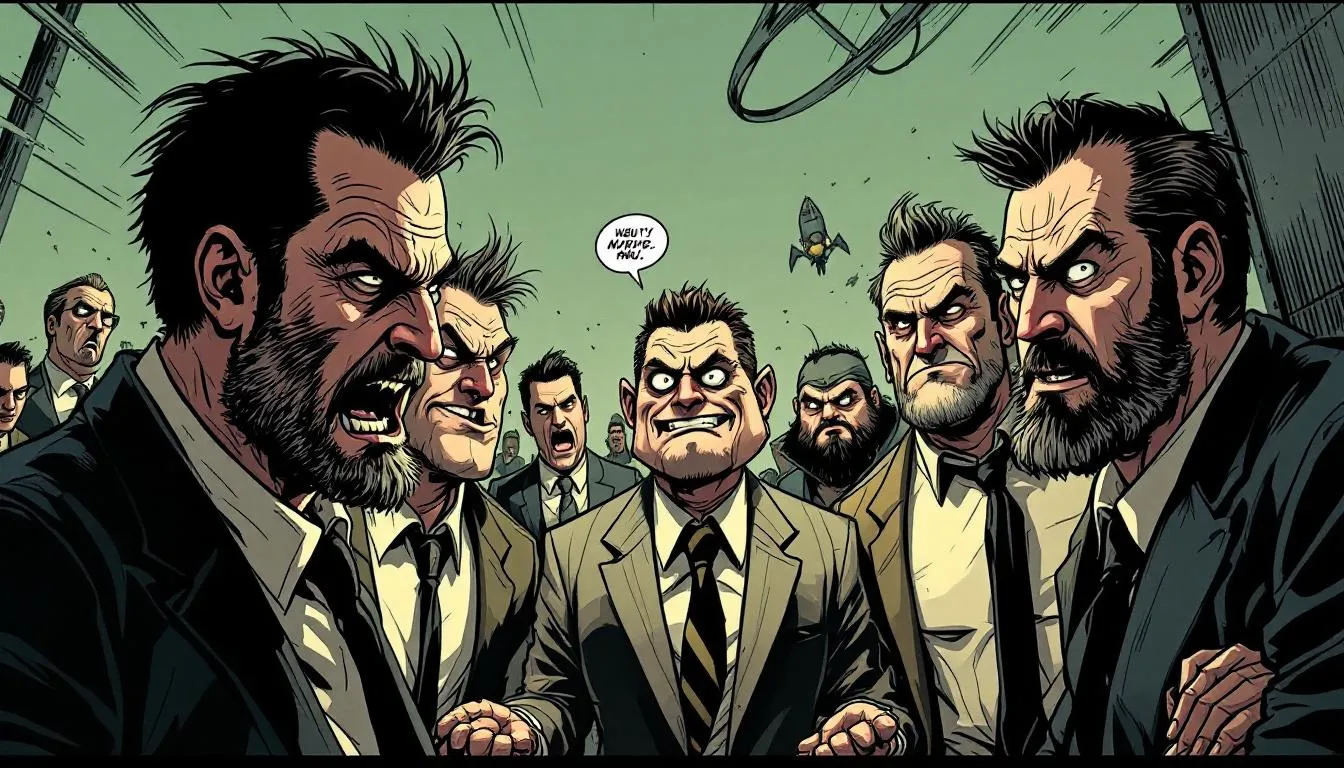
“Horrible Bosses” boasts a smartly assembled cast that significantly contributes to the film’s success. Roger Ebert praised the film for its strong cast, particularly highlighting Kevin Spacey’s and Jennifer Aniston’s performances. The chemistry among the lead actors, despite the film’s flaws, is credited for much of its success.
Kevin Spacey effectively portrayed a ruthless boss, drawing on his experience from similar roles in previous films. His performance added a layer of authenticity to the character of Dave Harken, making him both detestable and believable. Similarly, Jennifer Aniston’s role as Dr. Julia Harris was a standout, showcasing her versatility as an actress.
Charlie Day’s performance was another highlight, exemplifying how a strong character actor can elevate a film. The supporting cast, including actors like Colin Farrell and Jamie Foxx, added depth and humor, making “Horrible Bosses” a fun movie to watch and re-watch.
Brett Ratner was initially involved as a producer and had shown interest in directing the film through his production company. However, Seth Gordon ultimately served as the director, shaping the film’s comedic style and tone.
Memorable Scenes and Belly Laughs
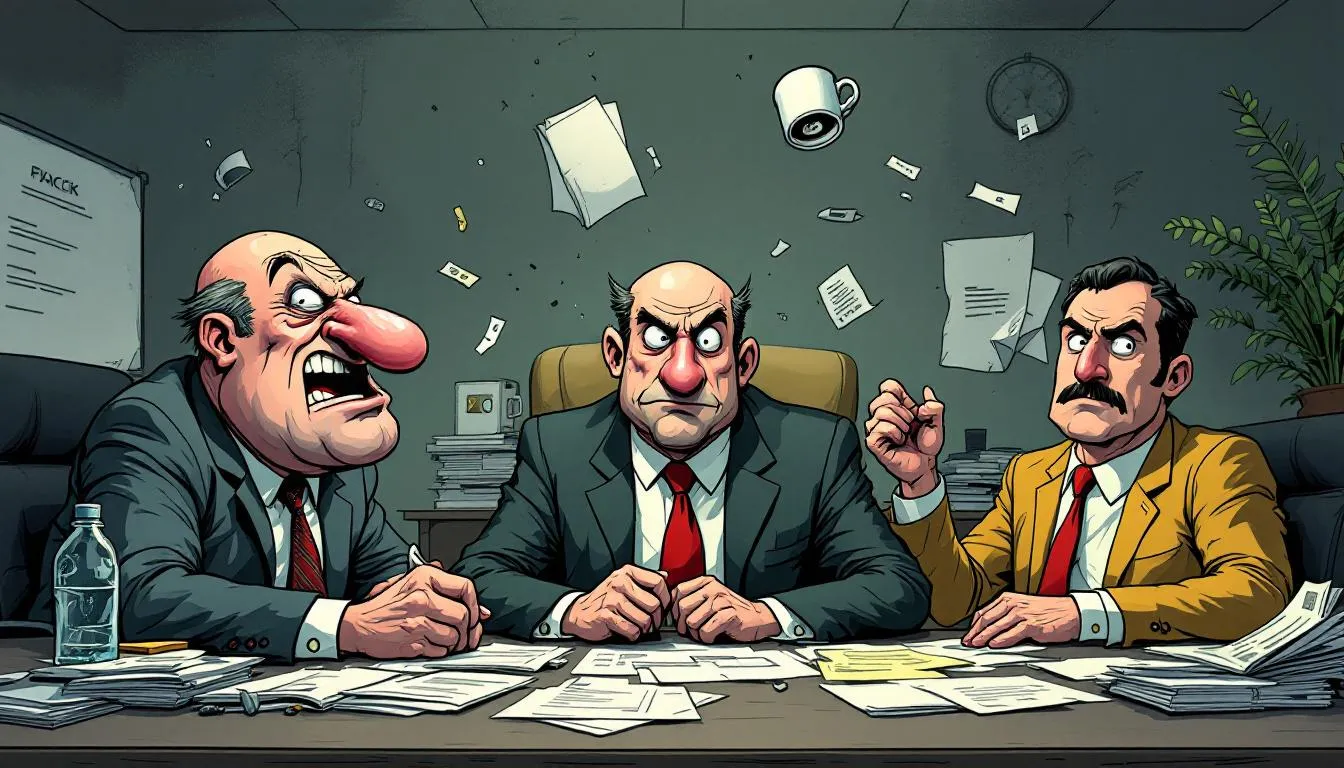
“Horrible Bosses” is filled with memorable scenes that deliver belly laughs, cementing its status as a funny movie. One such scene is the interrogation, where the characters’ ineptitude leads to a series of laughable misunderstandings. The humor in this scene is a perfect example of the film’s knack for turning stressful situations into comedic gold, with jokes landing naturally thanks to the cast’s impeccable timing.
Another standout moment is when the trio attempts to dispose of a body, leading to a comedy of errors that emphasizes their clumsiness. Dale’s drug-induced encounter with a wealthy woman is also a highlight, filled with slapstick scenarios that showcase the film’s talent for physical comedy.
Kurt inadvertently introducing his boss’s son, who turns out to be quite bizarre, becomes an unexpected source of comedy. Nick’s awkward attempts at flirting, which backfire spectacularly, add to the film’s overall humor. These moments, among others, make “Horrible Bosses” a film filled with great fun, clever jokes, and a few belly laughs.
Sexual Harassment Highlighted
Sexual harassment is a serious issue highlighted in “Horrible Bosses” through the character of Dr. Julia Harris. Dale Arbus, portrayed as a victim, faces coercive sexual advances from Dr. Julia Harris, who manipulates him into a sexual relationship under threat. This storyline shines a light on the often-overlooked issue of male harassment in the workplace.
One specific scene that highlights the absurdity of the situation is when Dr. Harris uses nitrous oxide to create an opportunity for her advances on Dale. The character of Dr. Julia Harris was inspired by a real-life boss who exhibited aggressive sexual behavior, further normalizing the discussion around harassment in workplaces.
In a twist, Dale blackmails Julia to stop her harassment, indicating a shift in power dynamics. His moral stance against Dr. Harris’s advances contrasts sharply with the film’s prevalent theme of harassment, adding depth and a serious undertone to the comedy.
Joke Writing and Humor
The humor in “Horrible Bosses” frequently leans on:
- Dark comedy, using absurd situations to provide relief in stressful scenarios.
- Sharp, witty dialogue that enhances character interactions and adds to the comedic effect.
- The cast’s improvisation, which significantly developed the film’s humor by introducing spontaneous, relatable moments in comedies.
A key factor in the film’s humor is the script, whose sharp writing and well-crafted dialogue are integral to the comedic style and the chemistry among the cast.
The comedic style combines situational comedy with character-driven humor, making the characters’ misadventures more engaging. Jennifer Aniston particularly stood out, adding a unique flavor to the comedy genre. Her portrayal of Dr. Julia Harris was both hilarious and unsettling, making her a standout character.
The film is packed with belly laughs and memorable moments. Despite its dark themes, the story remains light-hearted and fun. Clever joke writing and the cast’s impeccable delivery make “Horrible Bosses” a funnier comedy films worth revisiting, guaranteed to make you laugh.
Box Office Success and Opening Weekend
“Horrible Bosses” was not just a fun movie to watch; it was also a box office hit. The film earned approximately $28.3 million during its opening weekend, positioning it as the second highest-grossing film for that weekend. This impressive performance continued as it achieved the highest opening weekend gross for a dark comedy, surpassing “The Stepford Wives”.
In its first day, the film made $9.9 million, marking it as the second largest opening for an original R-rated comedy in summer 2011. By the end of its theatrical run, “Horrible Bosses” grossed a total of $209.8 million worldwide. These numbers highlight the film’s widespread appeal, the film’s distinctive look, and its financial success.
The movie’s success was a testament to its strong cast, engaging plot, and the relatable theme of dealing with horrible bosses that many have watched. Warner Bros. certainly struck gold with this comedy, making it a standout film in the genre, attracting big fans, all built on a solid premise. Movies like this one resonate with audiences for their humor and relatable situations.
For fans and collectors, the film is available on Blu-ray, featuring high-quality visuals, superior audio, and special features such as deleted scenes and featurettes.
Horrible Bosses 2: The Sequel
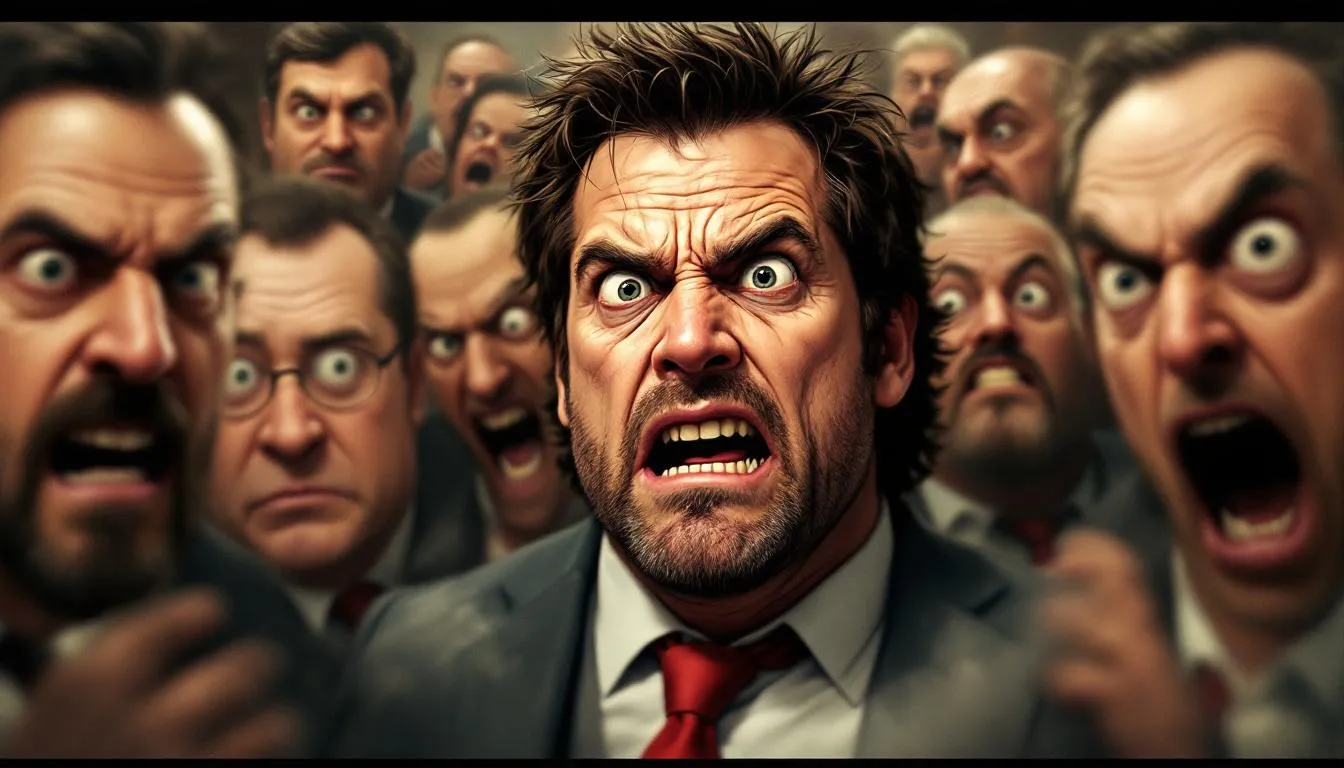
Following the success of the first film, “Horrible Bosses 2” hit the screens, incorporating familiar faces and new characters that added intrigue. The sequel saw the return of Jason Bateman, Charlie Day, and Jennifer Aniston, with new additions like Chris Pine and Christoph Waltz joining the ensemble. Chris Pine’s vibrant energy and comedic performance were particularly noted as a highlight.
The plot of “Horrible Bosses 2” revolves around the trio’s attempt to blackmail a billionaire after a business deal goes sour, leading to a comedic series of misadventures. After their Shower Buddy invention is stolen, Nick, Dale, and Kurt decide to kidnap Rex Hanson in a scheme to obtain ransom money and recover their losses. The film features returning cast members from the first movie, including Kevin Spacey and Jennifer Aniston, who continue to deliver engaging performances.
While the sequel may not have reached the same heights as its predecessor, it still managed to gross over $107 million worldwide, proving that the “Horrible Bosses” franchise resonated with audiences. However, some critics felt the sequel failed to justify its own existence. The blend of old and new characters, along with the fresh plot, kept fans entertained.
Critical Reception
“Horrible Bosses” received mixed to positive reviews from critics, holding a 69% approval rating on Rotten Tomatoes. The film’s humor, cast, and the relatable theme were praised, while some critics pointed out its perceived misogyny and lack of depth. Lisa Schwarzbaum from Entertainment Weekly described the film as a ‘bouncy, well-built, delightfully nasty tale of resentment and amoral revenge’.
The audience demographic showed that 51% of ticket buyers were male and 64% were over the age of 25. CinemaScore polls revealed audiences gave the film an average grade of ‘B+’, with male viewers rating it an ‘A−’ while females rated it a ‘B+’. Despite the mixed reviews, the film managed to strike a chord with its audience, leading to its box office success.
The sequel, however, received less favorable reviews, often relying on recycled humor. Despite this, “Horrible Bosses 2” still managed to gross over $107 million worldwide, highlighting the franchise’s persistent appeal.
Creating a Positive Work Environment
A positive work environment can make all the difference between dreading Monday mornings and actually looking forward to the workweek. In “Horrible Bosses,” the main characters—Nick Hendricks, Dale Arbus, and Kurt Buckman—find themselves trapped under the thumb of a truly horrible boss (or three), making their daily grind a nightmare. The movie hilariously exaggerates the misery that a toxic workplace can create, but the underlying message is clear: a supportive environment is key to employee happiness.
Fast forward to “Horrible Bosses 2,” and we see Nick, Dale, and Kurt trying to escape the cycle by starting their own business. Their goal? To build a company where they’re not just the bosses, but the kind of leaders they always wished they had. Of course, in true comedy fashion, things don’t go exactly as planned, but their efforts highlight the importance of open communication, recognizing achievements, and giving everyone a chance to grow.
By focusing on these positive practices, employers can avoid becoming the next horrible boss and instead foster a workplace where people feel valued. Whether you’re running your own business or just trying to survive the daily grind, taking a page from the main characters’ playbook (minus the kidnapping schemes) can lead to a happier, more productive team. After all, nobody wants to be the inspiration for the next big comedy about terrible bosses!
Employer Responsibilities
If there’s one thing “Horrible Bosses” makes crystal clear, it’s what not to do as an employer. The titular bosses—brought to life by a strong cast including Kevin Spacey, Jennifer Aniston, and Colin Farrell—are a masterclass in how to create a toxic workplace. From ignoring employee well-being to abusing their power, these characters show just how quickly things can spiral out of control when employer responsibilities are neglected.
In contrast, “Horrible Bosses 2” gives us a glimpse of what happens when the tables are turned. Nick, Dale, and Kurt, played by Jason Bateman, Charlie Day, and Jason Sudeikis, try their hand at being the bosses. Their journey is filled with hilarious missteps, but it also underscores the importance of providing a safe, fair, and supportive environment for employees. When employers take their responsibilities seriously—offering fair compensation, opportunities for growth, and a healthy work environment—they build trust and loyalty, and avoid becoming the next comedy film villain.
The lesson? Don’t be a horrible boss. Take care of your team, and you’ll not only avoid the kind of chaos that makes for a great comedy, but you’ll also create a workplace where everyone can thrive. And who knows? Maybe you’ll even inspire a few laughs for all the right reasons.
Summary
“Horrible Bosses” is more than just a comedy; it is a reflection of the serious issues many employees face in their workplaces. The film serves as a cautionary tale about the importance of addressing harassment claims and the legal ramifications of ignoring them. The strong cast, engaging plot, and memorable humor make it a standout film in the comedy genre.
From the employment law lessons to the critical reception, “Horrible Bosses” offers a lot to unpack. Whether you’re watching for laughs or to gain insight into workplace dynamics, the film delivers on both fronts. So, next time you’re dealing with a horrible boss, remember the lessons from Nick, Dale, and Kurt, and maybe find a more legal way to handle the situation!
Frequently Asked Questions
What did the employee in Higgins-Williams v. Sutter Medical Foundation claim about her inability to work for her boss?
The employee in Higgins-Williams v. Sutter Medical Foundation claimed her inability to work was due to a “disability.” That’s a pretty serious matter!
What serious issue is highlighted in the film “Horrible Bosses”?
The film “Horrible Bosses” shines a light on the serious issue of sexual harassment against men in the workplace, reminding us that it’s a problem that can affect anyone, regardless of gender.
What should employers do regarding harassment training?
Employers need to prioritize harassment training and ensure every complaint is taken seriously, no matter who is involved. It’s all about creating a safe and respectful work environment!
What tragic event occurred involving an LG&E employee?
Sadly, an LG&E employee shot his supervisor and then took his own life. It’s a heartbreaking situation that really hits home.
What percentage of employees surveyed reported having worked for an “unreasonable boss”?
About 46% of employees surveyed said they’ve had to deal with an “unreasonable boss.” That’s almost half, which is pretty wild!



